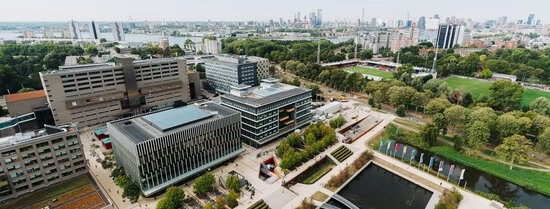This talk argues that Sophocles’s play Antigone—one of the most important cultural documents of the West—can help our times respond to environmental destabilization and the associated injustices between generations. I suggest that the play centrally revolves around civil disobedience in the face of a political power that that does not appear to fully recognize obligations to non-present generations despite its constitutive dependence on ancestors and descendants as well as on ecological conditions. While Antigone is set in non-democratic Thebes, it was intended and performed for recently democratic Athens. Scholars have often remarked upon the resulting contrast between monarchy and democracy,
especially in view of the monarch Creon’s apparent and increasingly authoritarian lack of counsel, which Athenian democracy would have been able to prevent. This lack of counsel, I suggest, also extends to Creon’s inability to grasp the democratic significance of turn-taking among governed and governing, which Aristotle would soon argue is central to democratic constitutions. I then seek to show that political turn-taking, today and in the play, entails a fair turn-taking among generations. In the so-called Anthropocene, governments seem similarly unwilling or unable to act on long-term obligations to non-present generations, and to accept death as a return to earth that gives way to the young. Such disrespect for fair turns, I will conclude, renders current governments liable to climate disobedience.
Bio
Matthias Fritsch is Professor of Philosophy at Concordia University, Montréal. In addition to over fifty journal articles and book chapters, he has published two monographs as sole author: Taking Turns with the Earth: Phenomenology, Deconstruction, and Intergenerational Justice (Stanford UP, 2018); The Promise of Memory: History and Politics in Marx, Benjamin, and Derrida (SUNY Press, 2005). He has co-edited the following: Phenomenology and Future Generations. Generativity, Justice, and Amor Mundi (SUNY Press, forthcoming); Intercultural Philosophy and Environmental Justice Between Generations: Indigenous, African, Asian, and Western Perspectives (Cambridge University Press, 2024);Environmental Philosophy and East Asia: Nature Time Responsibility (Routledge 2022); Eco-Deconstruction: Derrida and Environmental Philosophy (Fordham University Press, 2018); Reason and Emancipation (Humanity Press, 2007); Martin Heidegger, Phenomenology of Religious Life (Indiana University Press, 2004, co-translator). He has been a Humboldt Fellow in Frankfurt and Berlin, Visiting Research Professor in Kyoto, and Senior Research Fellow at Western Sydney University.

